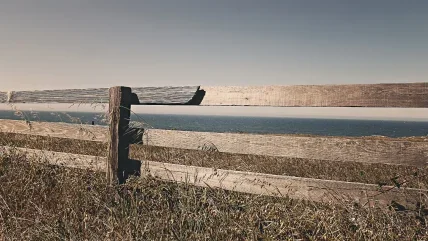
2010 was a year of raw material price inflation in the fencing industry.
“We have seen our timber costs going up 15-30% during the year, primarily driven by a lack of supply,” said one large manufacturer.
He also flagged up the inflationary effect of competition from the biomass sector, an issue that is also affecting overseas manufacturers.
The contact said he couldn’t see timber prices falling in 2011, but was unsure whether they would stabilise or rise.
Another manufacturer said raw material availability had unsurprisingly improved and prices had reduced slightly, but were still 15% above where they were a year ago. “For those offering annual fixed prices, prices of finished goods will have to increase.
“Once the weather improves and the season starts, raw material prices will almost certainly increase again and availability could again become a problem.”
Suppliers able to carry significant winter stocks should be best placed to offer stockists a reliable service and a fixed price through the season. One supplier said his stocks were 50% bigger than a year ago.
But contacts raised the dilemma of stockists’ reluctance to hold a wide range of products while still wanting to seize every business opportunity possible.
Snow has not greatly vexed the sector, partly because it’s a low demand season anyway, though frozen logs have affected yields and output. And wind damage is always a better stimulator of demand than snow.
Good weather combined with public holidays is the holy grail for fencing and this year there are four bank holidays in 10 days, thanks to the extra day for the royal wedding.
“Usually a couple of bank holidays together means they are big trading days,” said one company. “But with four in 10 days, fencing retailers and manufacturers are going to need to get it right to maintain supplies.
Another contact predicted the fencing sector would “make hay while the sun shines” – unless it rains of course.
Several manufacturers told TTJ they made a profit in 2010 and were optimistic for 2011, albeit with a touch of nervousness. “I think it’s going to be an interesting year,” said one. “We are starting with a strong order book.”
“In terms of volumes, it has been flat year-on-year,” said another. “We’re expecting a similar position this year.”
Another contact said his business was maintaining production levels at an even rate throughout the year to keep the workforce intact and to maintain a steady level of demand with suppliers, thereby obtaining best possible terms and prices.
On the agricultural fencing front, one contact predicted quite a strong performance in 2011 due to farmers being cash rich with wheat at £150 a tonne. And in commercial landscaping, he said KD hazard Class 4 treated products were achieving good levels of forward business for the next six weeks.





